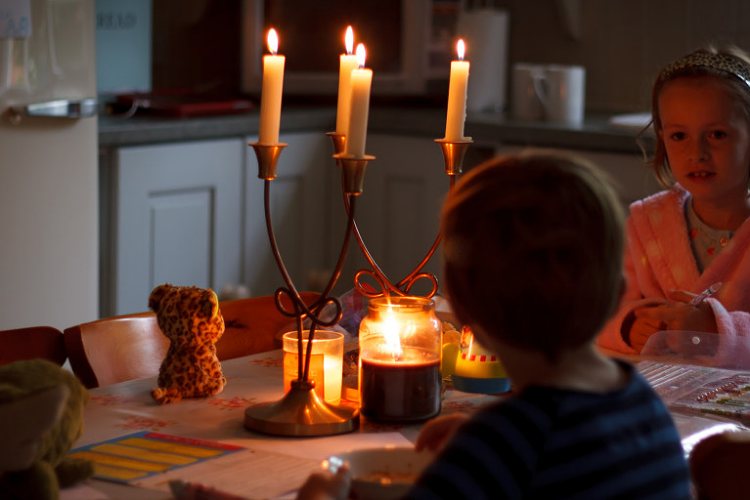Power outages used to feel like a rare inconvenience. A storm might knock down a few lines, and the lights would flicker back on in an hour or two. However, in recent years, Tennessee families have noticed a change: outages are lasting longer, occurring more frequently, and causing greater disruption.
Between stronger storms, Airstream Team heavier demand on the grid, and aging infrastructure, residents across Middle Tennessee are asking themselves a new question: How can I protect my home when the power goes out?
Why Outages Are on the Rise
Electricity demand in Tennessee has increased steadily in tandem with population growth. More people mean more homes, more devices, and more stress on the grid. But it’s not just about demand.
- Extreme weather conditions, including ice storms, tornadoes, and summer heatwaves, can overwhelm equipment and cause significant damage. Sudden spikes in usage occur when everyone cranks up the AC or heat, adding even more strain.
- Aging infrastructure: Much of the state’s electrical system was built decades ago. Worn components are more vulnerable to failure during storms.
- Grid capacity: As Tennessee continues to expand, the gap between what the grid can reliably supply and what households consume grows narrower.
Together, these factors make outages more complex to predict and more challenging to recover from. Families who once shrugged off a two-hour blackout now face multi-day interruptions.
Everyday Impacts of Losing Power
It’s tempting to think of outages as just an inconvenience. But ask anyone who’s lived through a prolonged blackout, and they’ll tell you the hidden costs add up quickly.
- Food spoilage: A refrigerator can keep food safe for only a few hours without power. Freezers hold out a bit longer, but not by much. Hundreds of dollars’ worth of groceries can be lost in a single event.
- Work disruption: With more people working from home, power outages directly impact income and productivity. No electricity means no Wi-Fi, no charged devices, and no way to stay connected.
- Health and safety concerns: Families relying on medical equipment or those caring for young children and elderly relatives face immediate risks when the power is out. Heatwaves and cold snaps can also make outages dangerous.
- Security systems: Many modern alarm systems, smart locks, and cameras depend on a constant power source. When the grid goes down, so does your home’s first line of defense.
Outages affect far more than comfort. They ripple into nearly every aspect of daily life.
Backup Power Options on the Market
Due to these risks, an increasing number of Tennessee homeowners are investing in backup power. There’s no one-size-fits-all solution, but three main categories dominate the market.
- Portable generators
- These are affordable and widely available, but they come with limitations. They need to be rolled out, fueled, and connected manually whenever the power fails. They’re best suited for short outages or powering only a few appliances.
- Battery backup systems
- Often paired with solar panels, battery systems provide a clean and quiet way to power essential appliances. They’re great for shorter outages but may not hold enough capacity for multi-day blackouts unless paired with additional storage.
- Whole-home generators
- Permanently installed, these systems automatically switch on when the grid goes down. Powered by propane or natural gas, they can keep everything running—heating, cooling, refrigerators, and even medical equipment.
Each option has its pros and cons, but more families are leaning toward whole-home solutions for their reliability and ease of use.
The Growing Popularity of Whole-Home Generators
In towns like Murfreesboro, Franklin, and Nashville, demand for home generator installation is climbing quickly. Homeowners are realizing that portable units require too much effort in stressful moments, while battery systems, though eco-friendly, may not cover extended outages.
Whole-home generators offer something different: seamless reliability. When the grid shuts down, the system automatically kicks in, often within seconds. With a steady fuel source, a generator can continue to run for days without requiring intervention.
That peace of mind is what drives so many families to invest. They don’t want to wonder if the freezer will hold out, if their home office will stay online, or if their loved ones will remain comfortable and safe in extreme weather. They want certainty.
Planning Pays Off
Outages in Tennessee are no longer rare, and they’re not going away anytime soon. Between severe weather and grid strain, the risk of being left without power is part of modern life in the region.
By preparing now, homeowners can avoid the stress, expense, and safety risks associated with scrambling when the power goes out. Whether through portable units, batteries, or a permanent system, backup power offers a critical safety net.
For many, the security of a complete home generator installation is worth the investment. In a state where the next storm is always just around the corner, planning means your home and your family won’t be left in the dark.

